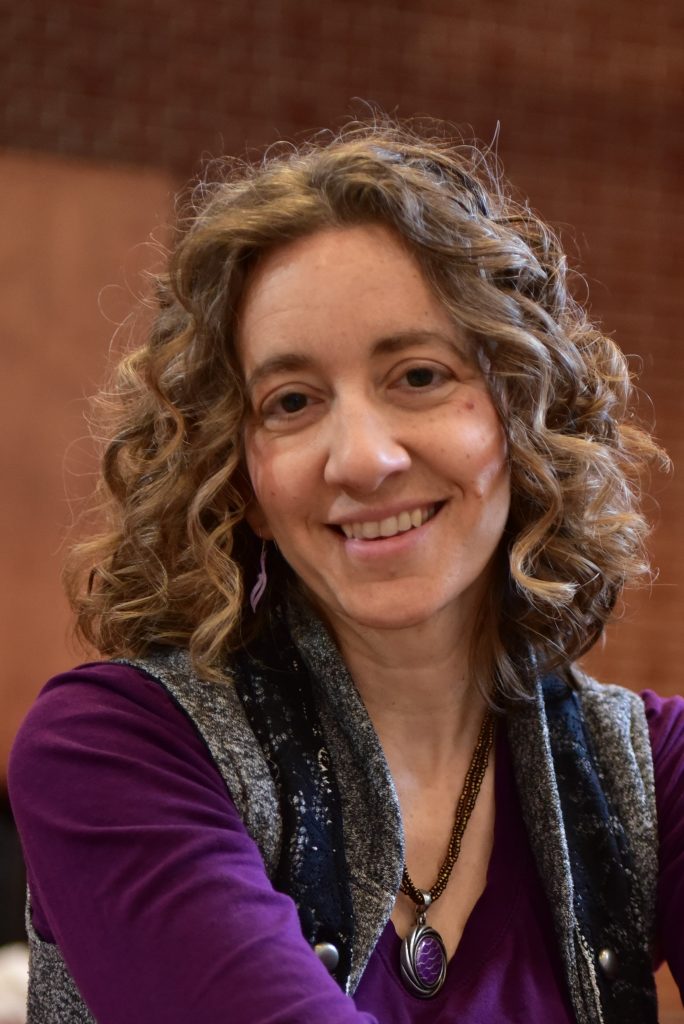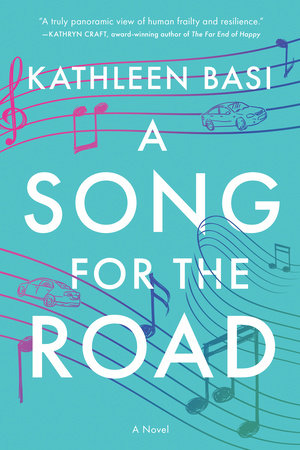

Kathleen Basi is the debut author of A Song For The Road, a beautifully written and poignant story of loss, faith, friendship, and adventure. She’s also a classical flutist and composer, wife, mom of four, and disability rights advocate. A full, busy life, and I was thrilled to connect with her.
How did you get the idea for A Song for The Road?
It happened in a detailed dream, although about thirty seconds after waking, I had nothing left but an image. I was standing in a beautiful place after a long journey, looking at the place where my family had died. But rather than sad or depressing, it was beautiful.
I realized the character could be almost anyone and tried several ideas that were irrational. Finally, I settled on someone who does what I do, which is church music. I figured, why not? I’m not always going to have a story that lends itself to including church music, but this one does.
In the story, Miriam’s Catholic faith is a major driver, and yet I think many people will relate to her struggles, no matter their faith. Can you talk about weaving faith into a story so its resonates more broadly?
Some writing advice says, ‘write things that scare you.’ With A Song For The Road, I feared it might be too religious for secular readers, and too secular for religious readers. I want my stories to be accessible to readers across the board; I don’t want to write religious fiction.
Religion has become a polarized topic, and not without reason. Much of what we see around religion makes me angry as a person of faith. That’s part of why I wanted to attempt this balance and reclaim this space. Faith can be important in peoples’ lives, without becoming an alienating factor.
We’ve divided ourselves into “yes” and “no” and abandoned the center ground. Yet I think that’s where most of us are. We need to find each other and interact as human beings.
My goal is always to make a difference. My writing is not just an expression of a story. It’s also a way to try to make a difference.
What was the inspiration behind Dicey’s name?
Dicey came to me mostly fully realized. Miriam couldn’t take this trip on her own; she needed someone to interact with, a person who would facilitate conversation and prompt self-reflection. As I was researching names, I saw this name and had a gut reaction: ‘This is it.’
Can you talk about your research? Even many Midwesterners may not know some of the places Miriam and Dicey travel to.
I didn’t want them to only end up at typical tourist destinations. I also had to get Miriam and Dicey across the country and find spots that made sense in terms of driving time. From there it was a matter of working backwards, to decide on the stops.
How do composing music and writing a novel differ, and in what ways are they the same?
That’s a big question! I compose instrumental music that’s beautiful, like a wedding prelude. For me, the melody comes instinctively and then I’ll try to make it more complex without losing the beauty.
I also compose music for worship. The text component is very structured. You have to stay within certain syllable counts and you can’t use words that would draw attention to themselves and pull people out of the song.
In a way, writing fiction is incredibly freeing. I have all these words to use, and the word count is so much freer.
But structurally, the challenges are similar. Both have very specific purposes, and you have to carve away the excess and be very efficient. One lesson I’ve learned from worship writing is that I want my writing to be fresh and connect with many readers.
What was your path to publication like?
I have a number of manuscripts that have crashed and burned for various reasons. I queried four books before I found an agent. With every book, I got a little closer.
Now, I’m returning to two of my earlier books. With one of them, I’ll keep the characters but write a completely different story.
I’m befuddled by people who can put out a book each year. While I make time for writing, it’s not a speedy process.
As I’ve become more sophisticated and further in my writing journey, I can see problems and will revise sooner in the process. So it’s slower in the drafting phase, with maybe slightly less revision.
Can you talk about what you’re reading now?
I’m reading two stories by other authors working with Alcove Press, the company that published A Song For The Road. They are The Rules of Arrangement by Anisha Bhatia, and A Bright Young Thing by Brianne Moore. They’re both wonderful. (Neither is out yet.)